A randomised controlled trial (NoMAD trial) showed micronutrients led to faster recovery from depression and anxiety compared with placebo. The RCT was followed by a 10 week open-label component and then a one year naturalistic review.
This 1-year follow-up of NoMAD explored the association between dominant treatment at 1-year follow-up with psychiatric outcomes.
Ninety-four (63 %) of the original 150 NoMAD participants completed 1-year follow-up. Primary outcomes included Generalised Anxiety Disorder-7 questionnaire (GAD-7), Patient Health Questionnaire-9 (PHQ-9), and Modified-Clinical Global Impression-Improvements (MCGI-I). Outcomes were explored based on dominant therapy at 1-year follow-up: Micronutrients (n = 20), Psychiatric Medications (n = 9), and No Treatment (n = 56). Nine participants could not be grouped due to mixed treatments at follow-up.
Regardless of dominant therapy, participants were functioning significantly better at 1-year compared to baseline. There was little change from end of 10 weeks of open-label micronutrient treatment, with the exception of depression scores, which were significantly lower (d = 0.4; p<.001). Most participants had either no or mild depression (78 %) and anxiety (85 %) scores at 1-year follow-up. Those who stayed on micronutrients were those who experienced better response at end of open-label compared with those who stopped or switched to medications. They also showed a greater reduction in health anxiety from end of open-label to 1-year follow-up compared with others. The main reason cited for stopping micronutrients was the cost. Limitations include a third of original sample lost to follow-up and uneven group sizes limit generalisability of results.
Participants, regardless of long-term supplementation, were functioning well at one year.
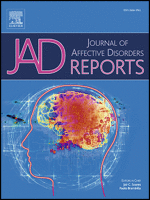
Coët A, Blampied FM, Rucklidge JJ. 1-year naturalistic follow-up of a Randomised Double-Blind, Placebo-Controlled Trial (“NoMAD”) Exploring the Effectiveness of Micronutrients in Improving Symptoms of Anxiety and Depression. Journal of Affective Disorders Reports. Volume 20, April 2025.
Micronutrients have demonstrated promise in managing inattention and emotional dysregulation in children with attention-deficit/hyperactivity disorder (ADHD). One plausible pathway by which micronutrients improve symptoms is the gut microbiome. This study examines changes in fecal microbial composition and diversity after micronutrient supplementation in children with ADHD (N = 44) and highlights potential mechanisms responsible for the behavioral improvement, as determined by blinded clinician-rated global improvement response to micronutrients. Participants represent a sub-group of the Micronutrients for ADHD in Youth (MADDY) study, a double blind randomized controlled trial in which participants received micronutrients or placebo for 8 weeks, followed by an 8-week open extension. Stool samples collected at baseline, week 8, and week 16 were analyzed using 16S rRNA amplicon sequencing targeting the V4 hypervariable region. Pairwise compositional analyses investigated changes in fecal microbial composition between micronutrients versus placebo and responders versus non-responders. A significant change in microbial evenness, as measured by alpha diversity, and beta-diversity, as measured by Bray-Curtis, was observed following micronutrients supplementation. The phylum Actinobacteriota decreased in the micronutrients group compared to placebo. Two butyrate-producing bacterial families: Rikenellaceae and Oscillospiraceae, exhibited a significant increase in change following micronutrients between responders versus non-responders. These findings suggest that micronutrients modulated the composition of the fecal microbiota and identified specific bacterial changes associated with micronutrient responders.
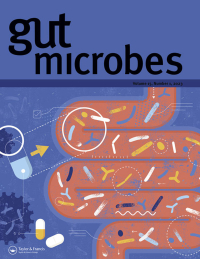
Ast HK, Hammer M, Zhang S, Bruton A, Hatsu IE, Leung B, McClure R, Srikanth P, Farris Y, Norby-Adams L, Robinette LM, Arnold LE, Swann JR, Zhu J, Karstens L, Johnstone JM. Gut microbiome changes with micronutrient supplementation in children with attention-deficit/hyperactivity disorder: the MADDY study. Gut Microbes. 2025 Dec;17(1):2463570. Epub 2025 Feb 18.
Purpose/background: One-fifth of women experience antenatal depression. Untreated antenatal depression is associated with increased risk of adverse birth outcomes. This study investigated the effect of broad-spectrum micronutrients (BSM; vitamins and minerals), used to treat antenatal depression (NUTRIMUM trial), on birth outcomes.
Methods/procedures: Birth outcomes of 129 mother-infant pairs were obtained from hospital medical records or personal health records for home births. Pairs from NUTRIMUM exposed to ≥8 weeks of BSM antenatally (MN; n = 55) were compared to pairs exposed to antidepressants antenatally (MED; n = 20) and a reference group (REF; n = 54) of pairs not exposed to trial BSM or antidepressants.
Findings/results: Groups were comparable on demographic variables. At study entry, MN and MED had depression scores in the moderate range, statistically higher than REF (nonclinical range). MN and REF did not differ significantly for gestational age, preterm births, infant size, or infant resuscitation. There were significantly lower rates of postpartum hemorrhage in MN relative to REF (7.7% vs 30%; RR = 0.26, 95% CI [0.08-0.84]). Gestational age at birth was higher for MN (39.5 weeks) than MED (38.5 weeks; d = 0.67, 95% CI [0.15-1.20], P = 0.03) as well as infant birth length (52.2 vs 50.0 cm; d = 0.77, 95% CI [0.21-1.33], P = 0.02), and rates of infant resuscitation were lower (14.5% vs 45%; RR = 0.33, 95% CI [0.15-0.73]). Days of BSM exposure was positively associated with birth weight (r = 0.32, P = 0.008) and length (r = 0.25, P = 0.04).
Implications/conclusions: Micronutrients used to alleviate antenatal depression may mitigate negative effects of depression on birth outcomes and showed more favorable birth outcomes compared with antidepressants.
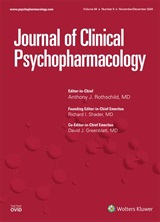
Broad-Spectrum Micronutrients or Antidepressants for Antenatal Depression: Effect on Maternal and Infant Birth Outcomes in an Observational Secondary Analysis of NUTRIMUM
Heaton JL, Campbell SA, Bradley HA, Mulder RT, Dixon L, Henderson J, Rucklidge JJ. Broad-Spectrum Micronutrients or Antidepressants for Antenatal Depression: Effect on Maternal and Infant Birth Outcomes in an Observational Secondary Analysis of NUTRIMUM. J Clin Psychopharmacol. 2024 Dec 2.
Background
Broad-spectrum micronutrients (minerals and vitamins) have shown benefit for treatment of depressive symptoms.
Aims
To determine whether additional micronutrients reduce symptoms of antenatal depression.
Method
Eighty-eight medication-free pregnant women at 12–24 weeks gestation, who scored ≥13 on the Edinburgh Postnatal Depression Scale (EPDS), were randomised 1:1 to micronutrients or active placebo (containing iodine and riboflavin), for 12 weeks. Micronutrient doses were generally between recommended dietary allowance and tolerable upper level. Primary outcomes (EPDS and Clinical Global Impression – Improvement Scale (CGI-I)) were analysed with constrained longitudinal data analysis.
Results
Seventeen (19%) women dropped out, with no group differences, and four (4.5%) gave birth before trial completion. Both groups improved on the EPDS, with no group differences (P = 0.1018); 77.3% taking micronutrients and 72.7% taking placebos were considered recovered. However, the micronutrient group demonstrated significantly greater improvement, based on CGI-I clinician ratings, over time (P = 0.0196). The micronutrient group had significantly greater improvement on sleep and global assessment of functioning, and were more likely to identify themselves as ‘much’ to ‘very much’ improved (68.8%) compared with placebo (38.5%) (odds ratio 3.52, P = 0.011; number needed to treat: 3). There were no significant group differences on treatment-emergent adverse events, including suicidal ideation. Homocysteine decreased significantly more in the micronutrient group. Presence of personality difficulties, history of psychiatric medication use and higher social support tended to increase micronutrient response compared with placebo.
Conclusions
This study highlights the benefits of active monitoring on antenatal depression, with added efficacy for overall functioning when taking micronutrients, with no evidence of harm. Trial replication with larger samples and clinically diagnosed depression are needed.
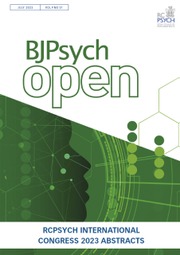
Efficacy and safety of a mineral and vitamin treatment on symptoms of antenatal depression: 12-week fully blinded randomised placebo-controlled trial (NUTRIMUM)
Bradley HA, Moltchanova E, Mulder RT, Dixon L, Henderson J, Rucklidge JJ. Efficacy and safety of a mineral and vitamin treatment on symptoms of antenatal depression: 12-week fully blinded randomised placebo-controlled trial (NUTRIMUM). BJPsych Open. 2024;10(4):e119.
Objective: With dual focus on structured, objective quantification of parent observations of child's behavior and identifying behaviors most amenable to change, this report examines Parent Target Problems (PTP) as a secondary outcome in a randomized clinical trial (RCT) of children with attention-deficit/ hyperactivity disorder (ADHD) in which one primary outcome, Clinical Global Impression-Improvement, showed a significant advantage of multinutrients over placebo and the other, Likert-type parent ratings, showed significant improvement in both groups, without significant difference between them.
Method: In a multisite 8-week RCT of broad-spectrum micronutrients ("multinutrients"), parents of children ages 6-12 (N = 126, 73% male, 88% white) with ADHD and emotional dysregulation nominated their child's most concerning problem(s) at baseline and quantified them by frequency, duration, impairment, and consequences. At subsequent visits, parents re-quantified the problem(s). Blinded child psychiatrists independently reviewed the PTPs and rated change at two timepoints compared to baseline. PTPs were grouped into 9 categories. Mean ratings were compared between active and placebo groups and explored by category.
Results: By week 8, a significant separation favored multinutrients: 38% of the multinutrient group were "definitely improved" or better, compared to 25% of the placebo group, and ratings of "no change" or "worse" occurred in 35% with placebo versus 23% with multinutrients (p = 0.04). Inattention (72.2%) and emotional dysregulation (69.1%) were the most frequently reported PTP categories. Inattention and internalizing symptoms improved more with multinutrients than placebo (p = 0.01, d = 0.55; p = 0.03, d = 0.80, respectively). The multinutrient advantage was not significant for 7 other symptoms, including hyperactivity/impulsivity, aggression, autistic symptoms, or emotional dysregulation/irritable oppositionality.
Conclusions: This secondary analysis found that the multinutrients, compared to placebo, were associated with improvements in parental concerns overall, and in two domains specifically: inattention and internalizing symptoms (anxiety/depression), but not in seven domains: hyperactivity/impulsivity, aggression, autistic symptoms or physiological symptoms, peer relationships or emotional dysregulation/irritable oppositionality.
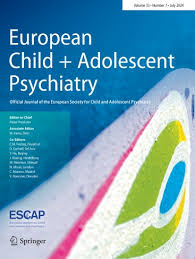
Problems most concerning to parents of children with ADHD and emotional dysregulation in a randomized controlled trial of multinutrients: MADDY secondary analysis
Tost G, Srikanth P, Bruton A, Hatsu IE, Leung BM, Ast HK, Eiterman LP, Robinette LM, Williams C, Gracious B, Eugene Arnold L, Johnstone JM. Eur Child Adolesc Psychiatry. 2024 May 31.
Background: Antenatal depression is a risk factor for poor infant outcomes. Broad-spectrum-micronutrients (vitamins and minerals) have shown efficacy in treating psychiatric symptoms in non-pregnant populations and are associated with reduced incidence of adverse birth outcomes, and improvements in neonatal development. We investigated the effects of treatment of antenatal depression with micronutrients above the Recommended Dietary Allowance on infant development compared to treatment with antidepressant medications and controls.
Method: One-hundred-and-three infants were assessed using the Brazelton Neonatal Behavioral Assessment Scale (NBAS) within 28 days of birth: 37 exposed to micronutrients in-utero (50-182 days exposure), 18 to antidepressants in-utero (exposure for full gestation), and 48 controls whose mothers received neither treatment nor experienced depressive symptoms.
Results: Controlling for gestational age and parity, there were significant group differences on habituation, orientation, motor, state regulation, autonomic stability and reflexes (p < .05). Micronutrient-exposed performed better than antidepressant-exposed and controls on habituation, motor and autonomic stability (p < .05), effect sizes ranged 1.0-1.7 and 0.5-1.0, respectively. Antidepressant-exposed performed significantly worse on orientation and reflexes compared to micronutrient-exposed and controls. Micronutrient-exposed had significantly better state regulation compared to antidepressant-exposed. There was an association between micronutrient exposure length and better habituation (r = 0.41, p = .028). Micronutrient exposure was generally identified as a stronger predictor of neonatal performance over maternal depression, social adversity, gestational age and infant sex.
Conclusion: In-utero micronutrient exposure appears to mitigate risks of depression on infant outcomes showing positive effects on infant behavior, on par with or better than typical pregnancies and superior to antidepressants. Limitations include differential exposure to micronutrients/antidepressants and lack of group blinding.
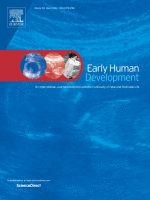
Effect of antenatal micronutrient or antidepressant exposure on Brazelton neonatal behavioral assessment scale (NBAS) performance within one-month of birth
Campbell SA, Bradley HA, Mulder RT, Henderson JMT, Dixon L, Haslett LC, Rucklidge JJ. Effect of antenatal micronutrient or antidepressant exposure on Brazelton neonatal behavioral assessment scale (NBAS) performance within one-month of birth. Early Hum Dev. 2024 Mar;190:105948.
Background: Anxiety and depression are increasingly burdening society. We investigated whether micronutrients (vitamins and minerals), improve anxiety and depression symptoms in an adult community setting.
Methods: Participants (n = 150) describing functionally-impairing symptoms of anxiety/depression randomly received micronutrients or placebo for 10 weeks. Primary outcome measures were Patient Health Questionnaire-9 (PHQ-9), Generalised Anxiety Disorder Scale-7 (GAD-7), and Clinical Global Impression-Improvement scale (CGII). They were monitored online with regular phone contact with a clinical psychologist.
Results: Linear mixed-effects modelling showed significant improvements in both groups, with the micronutrient group improving significantly more quickly on both the PHQ-9 (t = -2.17, p = 0.03) and the GAD-7 (t = -2.23, p = 0.03). Subsequent models with covariates showed that participant characteristics moderated time-by-group interactions; micronutrients provided fastest improvement relative to placebo for younger participants, those from lower socioeconomic groups and those who had previously tried psychiatric medication. On the CGII, there were no group differences at end-point ((F1,148) = 1.36, p = 0.25, d = 0.19, 95 % CI [-0.13 to 0.51]), with 49 % of the micronutrient and 44 % of the placebo groups being identified responders. Participants on micronutrients had significantly increased bowel motions compared with placebo. There was no increased suicidal ideation, no serious adverse events and the blind was adequately maintained. Drop out was low at 8.7 %.
Limitations: The improvement under placebo and lack of formal diagnoses limit generalizability.
Conclusions: Despite limited clinician contact, all participants improved significantly, though improvements were faster with micronutrients. Participants in some subgroups demonstrated a lower response to placebo, identifying where micronutrients may offer greatest potential as an intervention.
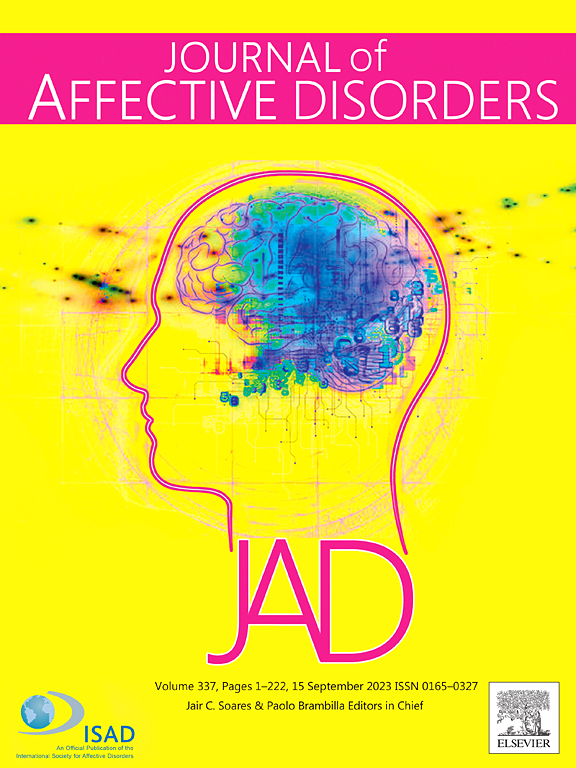
Efficacy and safety of a vitamin-mineral intervention for symptoms of anxiety and depression in adults: A randomised placebo-controlled trial “NoMAD”
Blampied FM, Tylianakis JM, Bell C, Gilbert C, Rucklidge JJ. Efficacy and safety of a vitamin-mineral intervention for symptoms of anxiety and depression in adults: A randomised placebo-controlled trial "NoMAD". J Affect Disord. 2023 May 31:S0165-0327(23)00718-8.
Elevated inflammation has been associated with adverse mood states, such as depression and anxiety, and antioxidant nutrients, such as vitamin C, have been associated with decreased inflammation and improved mood. In the current study comprising a cohort of pregnant women with depression and anxiety, we hypothesised that elevated inflammation would be associated with adverse mood states and inversely associated with vitamin C status and that multinutrient supplementation would optimise vitamin concentrations and attenuate inflammation. Sixty-one participants from the NUTRIMUM trial had blood samples collected between 12 and 24 weeks gestation (baseline) and following 12 weeks of daily supplementation with a multinutrient formula containing 600 mg of vitamin C or active placebo. The samples were analysed for inflammatory biomarkers (C-reactive protein (CRP) and cytokines) and vitamin C content and were related to scales of depression and anxiety. Positive correlations were observed between interleukin-6 (IL-6) and all of the mood scales administered (p < 0.05), including the Edinburgh Postnatal Depression Scale, the Clinical Global Impressions-Severity Scale, the Montgomery and Åsberg Depression Rating Scale, the Depression Anxiety Stress Scale 21, and the Generalized Anxiety Disorder-7 (GAD-7). CRP correlated weakly with GAD-7 (p = 0.05). There was an inverse correlation between CRP and the vitamin C status of the cohort (p = 0.045), although there was no association of the latter with the mood scales (p > 0.05). Supplementation with the multinutrient formula resulted in a significant increase in the vitamin C status of the cohort (p = 0.007) but did not affect the inflammatory biomarker concentrations (p > 0.05). In conclusion, greater systemic inflammation was associated with worse mood states; however, 12-week multinutrient supplementation did not alter inflammatory biomarker concentrations. Nevertheless, the vitamin C status of the cohort was improved with supplementation, which may aid pregnancy and infant outcomes.
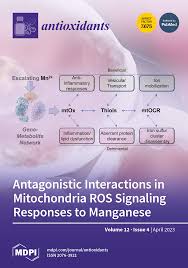
Inflammation and Vitamin C in Women with Prenatal Depression and Anxiety: Effect of Multinutrient Supplementation.
Carr AC, Bradley HA, Vlasiuk E, Pierard H, Beddow J, Rucklidge JJ. Inflammation and Vitamin C in Women with Prenatal Depression and Anxiety: Effect of Multinutrient Supplementation. Antioxidants (Basel). 2023 Apr 17;12(4):941.
Abstract
A package of biopsychosocial services for young adults experiencing psychological distress was evaluated and compared to usual outpatient psychiatric care. Young adults (18–25) with moderate-to-severe symptoms of depression and/or anxiety (n = 26) were enrolled in a 13-week intervention consisting of nutritional coaching and multi-vitamin supplements, weekly educational and peer support groups, and a modest financial stipend to engage with physical or expressive activities. A comparison group (n = 13) continued with their usual medication-based outpatient care. Program participants reported significantly improved depression, anxiety, severity of distress, overall quality of life, and empowerment over 4 months, with progress maintained or further improved at 2-month follow-up. No evidence of change on any outcome was observed for comparison group participants. Although long-term impacts on mental health trajectories and reliance on psychotropic medications remain unknown, a holistic self-learning approach is a viable alternative to standard outpatient psychiatric care for young adults.
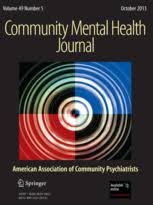
A Holistic Self‑learning Approach for Young Adult Depression and Anxiety Compared to Medication‑Based Treatment‑As‑Usual
Shannon Hughes, Mary Rondeau, Scott Shannon, Julia Sharp, Grace Ivins, JeongJin Lee, Ian Taylor, Brianna Bendixsen. Community Ment Health J. 2020 Jun 23.
Background: Healthcare costs are skyrocketing, with mental health treatment amongst the most expensive, especially when hospitalization is involved. According to the Mental Health Commission of Canada, one in five Canadians is living with a mental disorder in any given year, at an annual cost of $50 billion. In light of this societal burden, alternative approaches are being evaluated, such as brief psychotherapy by phone, peer support, and, as part of the emerging field of nutritional mental health, treatment with micronutrients (minerals and vitamins). Effectiveness of micronutrients has been demonstrated for many types of psychiatric symptoms, in about 45 studies of formulas that are either multinutrient (e.g., several B vitamins) or broad-spectrum (usually over 20 minerals and vitamins). Although this literature demonstrates therapeutic benefits, the potential economic impact of micronutrient treatment has been evaluated in only one case study of childhood psychosis.
Methods: The current case study was initiated to evaluate mental health-related hospitalization costs from 1997 to 2003 for a female adult diagnosed with various mood and psychotic symptoms. She was treated for the first 5 years with conventional methods and then subsequently with a broad-spectrum micronutrient formula.†
Results: The patient’s annual mental health hospitalization costs during conventional treatment averaged $59,864 across 5 years (1997–2001), with a peak annual cost of about $140,000. Since transitioning to broad-spectrum micronutrients, she has incurred no provincial hospitalization costs for mental health care, though her self-funded costs are currently $720/year for the micronutrients.
Conclusion: Further exploration of the treatment of mental health problems with broad-spectrum micronutrient formulas has the potential to make two significant contributions: improved mental health, and decreased costs for governments.
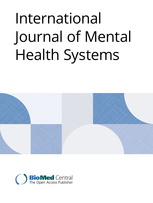
Hospitalization cost of conventional psychiatric care compared to broad‑spectrum micronutrient treatment: literature review and case study of adult psychosis
Kaplan BJ, Isaranuwatchai W, Hoch JS. Int J Ment Health Syst. 2017 Jan 31;11:14.
Insomnia is a debilitating condition causing psychological distress and frequently comorbid with other mental health conditions. This study examined the effect of 8 weeks of treatment by broad spectrum micronutrients (Hardy Nutritionals® Optimal Balance, formerly known as Daily Self Defense™) on insomnia using a multiple-baseline-across-participants open-label trial design. Seventeen adults were randomized to 1-, 2-, or 3-week baseline periods (14 completed). Self-report measures were the Consensus Sleep Diary–Morning (CSD-M), the Pittsburgh Insomnia Rating Scale (PIRS), and the Depression, Anxiety, Stress Scale (DASS). Baselines were generally stable. Treatment completers reported reliable and clinically significant change in insomnia severity (PIRS), in depression, stress, and anxiety (DASS), and on at least two aspects of sleep measured by the CDS-M. All completers were treatment-compliant, and side effects were minimal. Nutritional supplementation is shown to be a novel, beneficial treatment for insomnia in adults. Follow-up research using placebo-controlled designs as well as comparisons to cognitive-behavioral and other treatments is recommended.
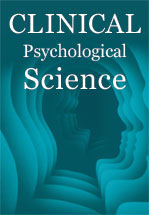
Effect of Micronutrients on Insomnia in Adults: A Multiple-Baseline Study
Joanna Lothian, Neville M. Blampied, Julia J. Rucklidge. Clinical Psychological Science. May 23, 2016.doi:10.1177/2167702616631740
After devastating flooding in southern Alberta in June 2013, we attempted to replicate a New Zealand randomised trial that showed that micronutrient (minerals, vitamins) consumption after the earthquakes of 2010-11 resulted in improved mental health. Residents of southern Alberta were invited to participate in a study on the potential benefit of nutrient supplements following a natural disaster. Fifty-six adults aged 23-66 were randomised to receive a single nutrient (vitamin D, n=17), a few-nutrients formula (B-Complex, n=21), or a broad-spectrum mineral/vitamin formula† (BSMV, n=18). Self-reported changes in depression, anxiety and stress were monitored for six weeks. Although all groups showed substantial decreases on all measures, those consuming the B-Complex and the BSMV formulas showed significantly greater improvement in stress and anxiety compared with those consuming the single nutrient, with large effect sizes (Cohen's d range 0.76-1.08). There were no group differences between those consuming the B-Complex and BSMV. The use of nutrient formulas with multiple minerals and/or vitamins to minimise stress associated with natural disasters is now supported by three studies. Further research should be carried out to evaluate the potential population benefit that might accrue if such formulas were distributed as a post-disaster public health measure.
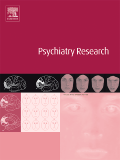
A randomised trial of nutrient supplements to minimise psychological stress after a natural disaster
Kaplan BJ, Rucklidge JJ, Romijn AR, Dolph M. Psychiatry Res. 2015 Aug 30;228(3):373-9.
A micronutrient formulation co-developed† by Hardy Nutritionals® founder David Hardy, showed “statistically robust improvements” in the first-ever double-blind study to test the effectiveness and safety of a multivitamin-mineral supplement in adults with ADHD. Researchers from the University of Canterbury and the University of Otago, New Zealand, randomized 80 adults diagnosed with ADHD to take either the micronutrient formulation or identical-looking placebo pills for 8 weeks. Most of the study participants had at least one psychiatric diagnosis in addition to ADHD. Additional diagnoses included multiple anxiety disorders, major depressive disorder, dysthymia, bipolar disorder, reading disability, and alcohol/substance misuse or dependence. The nutrient group reported more than double the improvement in attention, hyperactivity, and impulsivity symptoms, compared with the placebo group. Clinical psychologists rated more than twice as many people in the nutrient group ‘very much’ or ‘much’ improved in overall symptoms. They also rated moderate and severely depressed participants in the nutrient group as having nearly double the improvement in depression symptoms. Researchers found that the micronutrients were completely safe; there were no differences in side effects between the two groups.
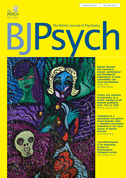
Vitamin–mineral treatment of attention-deficit hyperactivity disorder in adults: double-blind randomised placebo-controlled trial.
Rucklidge JJ, Frampton CMA, Gorman B, Boggis A. The British Journal of Psychiatry. 2014 Feb;204(2): doi: 10.1192/bjp.bp.113.132126 [Epub ahead of print]
Dr. Julia Rucklidge conducted nutrient assays on study participants in her 8 week double-blind RCT using micronutrient treatment† for adult ADHD. Using this extensive data set, she performed a post-hoc analysis of the original study in an attempt to determine if blood levels of nutrients in adult ADHD patients could be used to predict whether or not they would respond to micronutrient treatment. The blood markers measured were Vitamin D, Vitamin B12, Folate, Iron, Zinc, Copper, and Ferritin.
With the exception of Vitamin d (27% of participants deficient), nutrient deficiencies were slight or non-existent for the majority of participants at the beginning of the trial. In spite of the fact that only one participant exhibited iron deficiency, low iron levels were associated with higher baseline depression scores (p=0.009). No other nutrient significantly correlated with baseline psychiatric scores.
Throughout the course of the trial, micronutrient treatment was associated with significant increases in blood Vitamin D, Vitamin B12, and Folate (all p<0.001), but only Vitamin D was also identified as one of the nutrient markers that showed a statistically significant effect on treatment response.
The nutrient markers affecting treatment response were: ferritin, vitamin D, and copper. Greater ferritin at baseline correlated with being an ADHD responder (p=0.027). (ADHD response was defined as ≥30% decrease in symptom scores for a comprehensive combination of outcome measures. Of the 64 original study participants with complete nutrient assays, 39 (60.9%) were identified as ADHD responders.) Lower baseline vitamin D was predictive of greater improvements in depression (p=0.011) and global functioning (p=0.045) scores, and lower baseline copper levels predicted greater response in the depression (p=0.002) and clinical global improvement (p=0.007) outcome measures.
From among the non-nutrient variables measured, the researchers identified developmental history as the only noticeable predictor of response. This means that people with a history of developmental risk factors (e.g., slow to talk, walk, read, toilet train) may benefit even more from micronutrient treatment than those who developed normally as a child. It is also worth noting that several participants who reported alcohol or drug use at baseline later reported a reduction or cessation of these behaviours during micronutrient treatment, suggesting the possible value of nutrients in addiction therapy.
Only a few significant associations were identified between baseline biomarkers and outcomes, but, despite the difficulty in predicting the outcome for any given person, micronutrient treatment proved very effective – providing substantial ADHD symptom reduction for over half of the adults in this study.
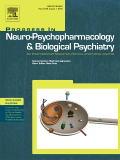
Moderators of treatment response in adults with ADHD treated with a vitamin-mineral supplement
Rucklidge JJ, Johnstone J, Gorman B, Boggis A, Frampton CM. Prog Neuropsychopharmacol Biol Psychiatry. 2014 Apr 3;50:163-71. doi:10.1016/j.pnpbp.2013.12.014. Epub 2013 Dec 26. PubMed PMID: 24374068.
A 24-year-old woman who experienced dramatic improvement in her ADHD and depression symptoms for more than 2 years while taking a micronutrient formulation co-developed† by Hardy Nutritionals® founder David Hardy later experienced a recurrence of her former psychiatric symptoms as a result of a severe yeast infection. Her physical symptoms included an overall flu-like feeling; a chronic sore throat and runny nose; cravings for sugary and starchy foods; gastrointestinal cramps; and rashes and itching on her legs, groin, genital and rectal areas. Psychiatric symptoms included severe moodiness, inability to experience pleasure, and chronic irritability. These physical and psychiatric symptoms persisted for several months despite her ongoing use of a prescription antifungal cream. The woman began taking four capsules of olive leaf extract (identical to our Hardy Nutritionals™ Olive Leaf Extract) as well as two capsules of probiotics (identical to our Hardy Nutritionals™ Greens & Probiotics) daily to treat the yeast infection, in addition to her regular therapeutic dose of the micronutrients. After a week and a half, the woman’s physical and psychiatric symptoms both improved, including disappearance of her rashes, cessation of the chronic itching, elimination of her runny nose, and improved mood and energy levels. After 2 months, she had returned to her previous level of function. During a year of follow-up, researchers found that the woman continued to enjoy relief from the physical and psychiatric symptoms caused by the yeast infection as long as she continued to take the Olive Leaf Extract.
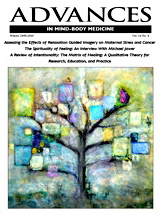
Could yeast infections impair recovery from mental illness? A case study using micronutrients and olive leaf extract for the treatment of ADHD and depression.
Rucklidge JJ. Advances in Mind-Body Medicine. 2013 Summer;27(3):14-8.
Scientists observed while conducting previous studies that many study participants whose psychiatric symptoms were treated successfully with a micronutrient formulation co-developed† by Hardy Nutritionals® founder David Hardy tended to reduce or eliminate use of alcohol, cigarettes and cannabis on their own. This study details one case in which on-off micronutrient use resulted in off-on cigarette and cannabis smoking as well as off-on psychiatric symptoms. Micronutrients provide the necessary precursors and cofactors for adequate neurotransmitter production and regulation. In this way, micronutrients assist with mood regulation, help reduce anxiety, and directly affect brain reward circuitry, all of which can help individuals to successfully stop drug use.
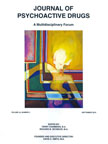
Use of micronutrients attenuates cannabis and nicotine abuse as evidenced from a reversal design: a case study.
Harrison R, Rucklidge JJ, Blampied N. Journal of Psychoactive Drugs. 2013 Jun;45(2):168-178.
Following a 6.3-magnitude earthquake in Christchurch, New Zealand, researchers randomized 91 earthquake survivors to take one of two vitamin-mineral formulas (Berocca Performance or a micronutrient formulation co-developed† by Hardy Nutritionals® founder David Hardy. Then they measured symptoms of situation-induced depression, anxiety, and stress in these individuals, as well as 25 additional people who took no supplement (a control group). After 4 weeks, 20% of the control group, 43% of the Berocca Performance group, and 74% of the group taking the micronutrients showed significant improvement in depression, anxiety, and stress symptoms. Researchers concluded that this study supports micronutrients as an inexpensive and practical treatment for acute stress following a natural disaster, with a slight advantage to higher doses.
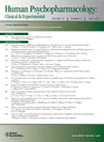
Shaken but unstirred? Effects of micronutrients on stress and trauma after an earthquake: RCT evidence comparing formulas and doses.
Rucklidge JJ, Andridge R, Gorman B, Blampied N, Gordon H, Boggis A. Human Psychopharmacology. 2012 Sep;27(5):440-54.
Researchers investigated the therapeutic effects of a micronutrient formulation co-developed† by Hardy Nutritionals® founder David Hardy in 7 children with bipolar disorder. The children’s additional psychiatric diagnoses included attention deficit hyperactivity disorder, oppositional defiant disorder, major depressive disorder, generalized anxiety disorder, conduct disorder, and obsessive-compulsive disorder. The children experienced a 37% decrease in depression scores and a 45% decrease in mania scores over 8 weeks. Side effects were minor and transient—mostly temporary gastric discomfort.
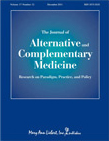
Feasibility of a nutritional supplement as treatment for pediatric bipolar spectrum disorders.
Frazier EA, Fristad MA, Arnold LE. Journal of Alternative and Complementary Medicine. 2012 Jul;18(7):678-85.
Researchers studied the impact of a micronutrient formulation co-developed† by Hardy Nutritionals® founder David Hardy on neurocognitive functioning in 14 adults with attention deficit hyperactivity disorder (ADHD) and severe mood dysregulation over an 8-week period. Significant improvement was observed in the ADHD-micronutrient group, but not the control group, across a range of verbal abilities, including verbal learning, verbal cognitive flexibility and fluency, and verbal inhibition. These neurocognitive improvements were large and consistent with improved psychiatric functioning.

Can micronutrients improve neurocognitive functioning in adults with ADHD and severe mood dysregulation? A pilot study.
Rucklidge JJ, Harrison R, Johnstone J. Journal of Alternative and Complementary Medicine. 2011 Dec;17(12):1125-31.
A 7.1-magnitude earthquake in Christchurch, New Zealand created a natural experiment for measuring the protective effects of a micronutrient formulation co-developed† by Hardy Nutritionals® founder David Hardy on mood, anxiety and stress. Prior to the earthquake, researchers had assessed mood, anxiety and stress levels in a group of 33 adults diagnosed with attention deficit hyperactivity disorder, and they chose to repeat the same measures after the earthquake. Scores showed that the 16 participants taking micronutrients were more resilient to the effects of the earthquake than the 17 individuals not taking any supplement. This effect was particularly marked for depression scores.

Post-earthquake psychological functioning in adults with attention-deficit/hyperactivity disorder: positive effects of micronutrients on resilience.
Rucklidge JJ, Blampied, NM. New Zealand Journal of Psychology. 2011;40(4):51.
The role of good nutrition for resilience in the face of stress is a topic of interest, but difficult to study. A 7.1 earthquake took place in the midst of research on a micronutrient treatment† for Attention-Deficit/Hyperactivity Disorder (ADHD), providing a unique opportunity to examine whether individuals with ADHD taking micronutrients demonstrated more emotional resilience post-earthquake than individuals with ADHD not taking micronutrients. Thirty-three adults with ADHD were assessed twice following the earthquake using a measure of depression, anxiety and stress also completed at some point pre-earthquake (baseline). Seventeen were not taking micronutrients at the time of the earthquake (control group), 16 were (micronutrient group). While there were no between-group differences one week post-quake (Time 1), at two weeks post-quake (Time 2), the micronutrient group reported significantly less anxiety and stress than the controls (effect size 0.69). These between group differences could not be explained by other variables, such as pre-earthquake measures of emotions, demographics, psychiatric status, and personal loss or damage following the earthquake. The results suggest micronutrients may increase resilience to ongoing stress and anxiety associated with a highly stressful event in individuals with ADHD and are consistent with controlled studies showing benefit of micronutrients for mental health.

Micronutrients reduce stress and anxiety following a 7.1 earthquake in adults with Attention-Deficit/Hyperactivity Disorder
Rucklidge JJ, Johnstone J, Harrison R, Boggis A. 2011. Psychiatry Research, 189:281-87.
Researchers detail an off-on-off-on trial of an 18-year-old male diagnosed with obsessive-compulsive disorder (OCD) and Asperger’s disordera who took a micronutrient formulation co-developed† by Hardy Nutritionals® founder David Hardy. The young man first underwent cognitive behavioral therapy (CBT) for one year with a modest response. Within a year thereafter, his anxiety became severe again and he began to experience major depression. After 8 weeks of using a vitamin-mineral formulation, his mood stabilized, his anxiety reduced, and his obsessions were in remission. Treatment was then discontinued for 8 weeks, during which time his obsessions, anxiety, and mood worsened. Reintroduction of the micronutrient formula again improved mood, obsession and anxiety symptoms within 8 weeks. After taking the formulation for 6 months longer, he experienced further improvements in mood and anxiety symptoms.

Successful treatment of OCD with a micronutrient formula following partial response to Cognitive Behavioral Therapy (CBT): a case study.
Rucklidge JJ. Journal of Anxiety Disorders. 2009 Aug;23(6):836-40.
Researchers treated nine unselected children with mood and behavioral problems with a micronutrient formulation co-developed† by Hardy Nutritionals® founder David Hardy. The children’s psychiatric diagnoses included attention deficit hyperactivity disorder, bipolar disorder, depression, oppositional defiant disorder, obsessive-compulsive disorder, generalized anxiety disorder, Asperger syndrome, and Prader-Willi syndrome. After a minimum of 8 weeks of micronutrient treatment, the children’s behavior improved significantly in the following areas: anxious and depressed mood, thought problems, interpersonal relationship problems, attention problems, social problems, withdrawn behavior, disruptive behavior, delinquent behavior, aggressive behavior, and self-harm behavior.
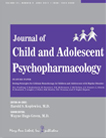
Improved mood and behavior during treatment with a mineral-vitamin supplement: an open-label case series of children.
Kaplan BJ, Fisher JE, Crawford SG, Field CJ, Kolb B. Journal of Child and Adolescent Psychopharmacology. 2004 Spring;14(1):115-22.